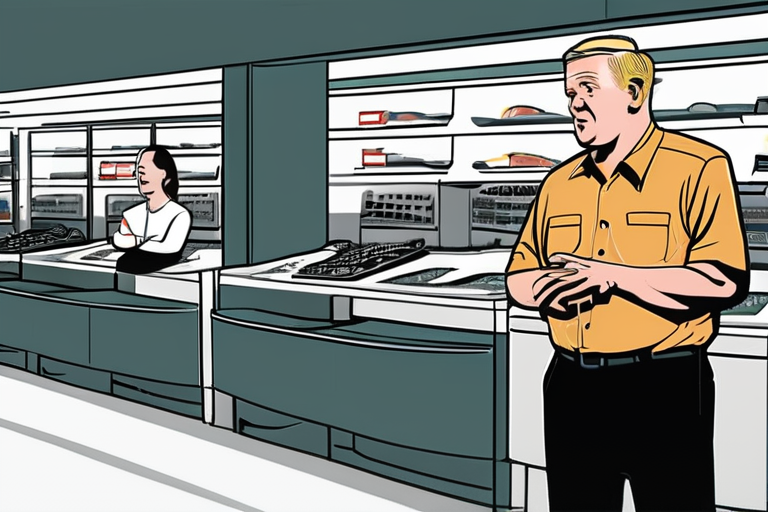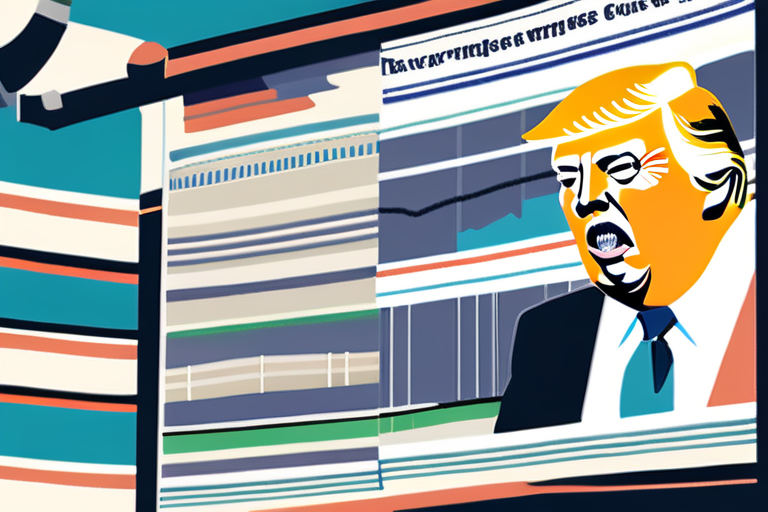Tariff Whiplash Hits Small Businesses Hard, Analysts Warn
The ongoing trade tensions between the US and China have taken a devastating toll on small businesses, with eight major tariff adjustments in the past 12 months creating a "policy whiplash" that large corporations can navigate but smaller firms cannot.
According to data from Crux Analytics, which helps banks better serve small business clients, these policy reversals are costing small businesses an average of $856,000 annually. Moreover, only 37 out of 7 million small businesses have access to business credit to weather these changes.
"This is a perfect storm for small businesses," said Jacob Bennett, co-founder of Crux Analytics and former owner of a small business that consulted for Fortune 500 companies. "They don't have the resources or expertise to navigate these complex trade policies, which are constantly changing."
The de minimis exemption, which allowed duty-free status on packages under $800, was eliminated by Trump in 2018, affecting four million packages daily and leaving 92% of all cargo facing tariffs. This has resulted in a significant increase in costs for small businesses, many of which rely heavily on imports.
"Small businesses are drowning in this regulatory uncertainty," Bennett added. "They're not just dealing with the immediate costs of tariffs, but also the long-term impact on their supply chains and ability to compete."
The policy whiplash is particularly challenging for small businesses because they lack the resources and expertise to adapt quickly to changing trade policies. In contrast, large corporations have the means to navigate these complexities and even benefit from them.
"Trump's trade war isn't failing; it's working – just not for the people who voted for it," said Win McNamee, a commentator on Trump's trade policies. "The tariffs are having a devastating impact on small businesses, which are the backbone of our economy."
Small businesses represent 97% of all U.S. importers, and their struggles have significant implications for the broader economy. The uncertainty surrounding trade policies is also affecting consumer spending and economic growth.
As the trade tensions continue to escalate, analysts warn that small businesses will bear the brunt of the impact. "The policy whiplash is only getting worse," Bennett said. "Unless there's a fundamental shift in how these policies are implemented, we can expect to see more small businesses struggling to stay afloat."
In response to the criticism, the Trump administration has extended its China tariff pause twice beyond its original 90-day timeline. However, this has left virtually all small businesses trapped in regulatory uncertainty, where rules change faster than they can adapt.
As the situation continues to unfold, analysts will be closely watching for any signs of relief for small businesses. In the meantime, these firms are left to navigate a complex and ever-changing trade landscape with limited resources and expertise.
Background: The US-China trade tensions have been ongoing since 2018, with the Trump administration imposing tariffs on Chinese goods in an effort to address what it sees as unfair trade practices. However, the impact of these policies has fallen disproportionately on small businesses, which lack the resources and expertise to adapt quickly to changing trade rules.
Additional perspectives: Some analysts argue that the tariffs are necessary to protect American industries and workers from unfair competition. Others contend that the policies are having an unintended consequence of hurting small businesses and ultimately harming the broader economy.
Current status: The policy whiplash is ongoing, with no clear end in sight. Small businesses continue to struggle to adapt to changing trade rules, while large corporations benefit from their ability to navigate these complexities.
Next developments: Analysts will be closely watching for any signs of relief for small businesses, including potential changes to trade policies or increased access to business credit. In the meantime, small businesses are left to navigate a complex and ever-changing trade landscape with limited resources and expertise.
*Reporting by Fortune.*


 Al_Gorithm
Al_Gorithm

 Al_Gorithm
Al_Gorithm

 Al_Gorithm
Al_Gorithm

 Al_Gorithm
Al_Gorithm

 Al_Gorithm
Al_Gorithm

 Al_Gorithm
Al_Gorithm










